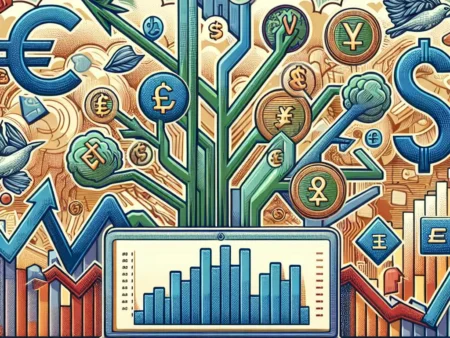Geopolitik mempengaruhi pergerakan mata uang melalui faktor-faktor politik, ekonomi, dan keamanan yang memengaruhi nilai tukar dan stabilitas mata uang.
Bagaimana Geopolitik Mempengaruhi Pergerakan Mata Uang
-
Table of Contents
- Introduction
- The Role of Geopolitics in Currency Movements
- 1. Economic Stability and Investor Confidence
- 2. Trade Relations and Exchange Rates
- 3. Monetary Policy and Interest Rates
- Case Study: The Impact of COVID-19 on the Indonesian Rupiah
- 1. Economic Contraction and Investor Sentiment
- 2. Trade Disruptions and Supply Chains
- Conclusion
Introduction

Geopolitics plays a crucial role in shaping the global economy, and one area where its influence is particularly evident is in the movement of currencies. In Indonesia, a country with a rapidly growing economy and a significant presence in the global market, understanding how geopolitics affects currency movements is essential for businesses, investors, and policymakers. This article aims to explore the various ways in which geopolitics impacts currency movements in Indonesia, providing a comprehensive analysis of the subject.
The Role of Geopolitics in Currency Movements
1. Economic Stability and Investor Confidence
One of the primary ways geopolitics affects currency movements is through its impact on economic stability and investor confidence. Geopolitical events such as political instability, armed conflicts, or trade disputes can create uncertainty in the market, leading to a decrease in investor confidence. When investors perceive a higher level of risk, they tend to withdraw their investments from a country, resulting in a depreciation of the local currency.
For example, in 1998, Indonesia experienced a severe economic crisis triggered by political instability and social unrest. The rupiah, Indonesia’s currency, depreciated significantly against major currencies due to the loss of investor confidence. This depreciation made imports more expensive, leading to higher inflation and a decline in living standards for many Indonesians.
2. Trade Relations and Exchange Rates
Geopolitical factors also influence currency movements through their impact on trade relations. Trade agreements, tariffs, and trade disputes can all affect the value of a country’s currency. When a country has strong trade relations with others, its currency tends to appreciate as demand for its goods and services increases. Conversely, trade disputes or protectionist measures can lead to a depreciation of the currency.
In recent years, Indonesia has been actively involved in trade negotiations and agreements, such as the Regional Comprehensive Economic Partnership (RCEP) and the Indonesia-Australia Comprehensive Economic Partnership Agreement (IA-CEPA). These agreements aim to boost trade between countries, which can have a positive impact on the value of the Indonesian rupiah.
3. Monetary Policy and Interest Rates
Geopolitics also influences currency movements through its impact on monetary policy and interest rates. Central banks play a crucial role in managing a country’s currency, and their decisions are influenced by geopolitical factors. For example, in times of political instability or economic uncertainty, central banks may choose to lower interest rates to stimulate economic growth. This can lead to a depreciation of the currency as investors seek higher returns elsewhere.
In Indonesia, Bank Indonesia is responsible for setting monetary policy and managing the rupiah. The central bank closely monitors geopolitical developments and adjusts interest rates accordingly. For instance, during the COVID-19 pandemic, Bank Indonesia lowered interest rates to support the economy, which had an impact on the value of the rupiah.
Case Study: The Impact of COVID-19 on the Indonesian Rupiah
1. Economic Contraction and Investor Sentiment
The COVID-19 pandemic has had a significant impact on currency movements worldwide, including in Indonesia. As the virus spread globally, countries implemented lockdown measures, leading to a contraction in economic activity. This contraction, coupled with uncertainty about the duration and severity of the pandemic, resulted in a decrease in investor sentiment and a flight to safe-haven currencies.
In the case of Indonesia, the rupiah experienced a significant depreciation against the US dollar in the early months of the pandemic. Investors were concerned about the country’s ability to manage the health crisis and its economic impact. However, as the Indonesian government implemented measures to support the economy and investor confidence gradually improved, the rupiah started to recover.
2. Trade Disruptions and Supply Chains
The COVID-19 pandemic also disrupted global trade and supply chains, which had implications for currency movements. As countries imposed restrictions on movement and trade, the demand for Indonesian exports decreased, leading to a decline in the value of the rupiah. Additionally, disruptions in global supply chains affected Indonesia’s ability to import essential goods, putting further pressure on the currency.
However, as the global economy gradually reopened and trade resumed, the rupiah regained some of its value. The Indonesian government also implemented policies to support domestic industries and reduce reliance on imports, which helped stabilize the currency.
Conclusion
In conclusion, geopolitics plays a significant role in shaping the movement of currencies in Indonesia. Economic stability, investor confidence, trade relations, monetary policy, and interest rates are all influenced by geopolitical factors, which in turn impact the value of the Indonesian rupiah. Understanding these dynamics is crucial for businesses, investors, and policymakers to make informed decisions and navigate the complexities of the global economy. By closely monitoring geopolitical developments and their implications, stakeholders can better anticipate currency movements and mitigate potential risks.







